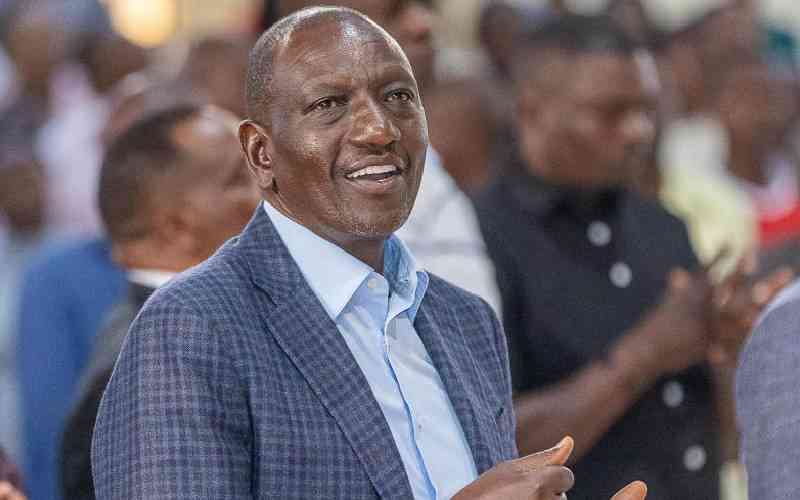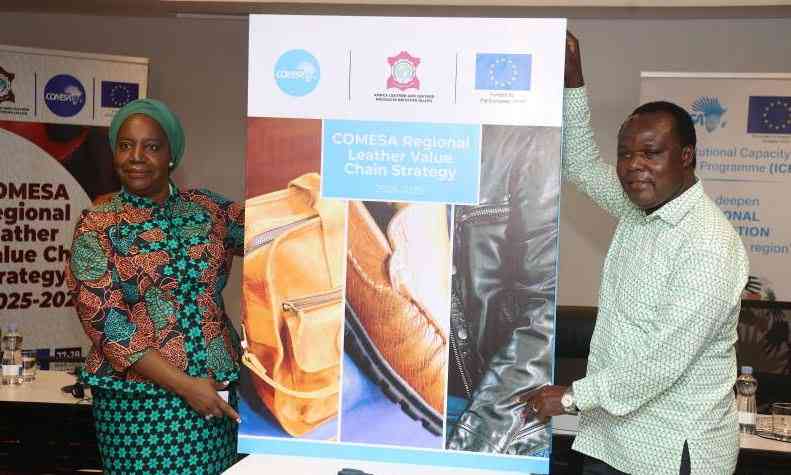By Jevans Nyabiage
Competition for an inland fibre optic cable network is set to intensify as telecommunication firms sink billions of shillings to consolidate their presence in the data market.
Kenya boasts four undersea fibre optic cables: the Government-led The East Africa Marine System (Teams), privately owned Seacom, operators-run Eassy and Lower Indian Ocean Network (Lion2) in which Telkom Kenya’s parent firm Orange owns a stake.
However, even with increased capacity, backhaul, or the wholesale price of bandwith, remains an expensive barrier to extending fibre optic networks.
High charges
This has kept data charges high, with the disparity in internet connectivity in the country — with urban areas significantly better connected than rural areas — making the situation worse.
But as the cost of international bandwidth comes down, more operators (the Government included) have begun rolling out national and inland fibre backbone networks to take bandwidth countrywide.
The wholesale price of bandwith on international fibre optic cables has come down to below Sh34,000 ($400) from the Sh297,500 ($3,500) for a megabyte charged by satellite service providers before Seacom, Teams and Eassy gave Kenya undersea fibre connections.
For mobile phone operators, analysts see the future as one built around data, value-added services, product differentiation and quality of service.
Mobile operator, Safaricom has become the latest firm to announce a five-year plan to build an inland fibre optic network at an estimated cost of more than Sh10 billion.
The firm hopes this will give it a larger share of the data market and reduce its reliance on the voice market, which is facing increased competition and shrinking margins.
Drive profitability
When the firm announced its full year results a fortnight ago, it was evident that there is a big shift in how the industry will drive its profitability in the near future.
The mobile operator, just like other telecoms, is banking on non-voice segments to drive growth.
Voice’s contribution to Safaricom’s total revenue dropped to 62 per cent in the period ending March, from 88 per cent in 2008.
Stay informed. Subscribe to our newsletter
Four years ago, the contribution from the segment that includes data, short messages, phone sales and mobile money transfer service M-Pesa was about eight per cent, but it has risen to a third of total sales.
The mobile operator, which is 35 per cent owned by the Government, saw its revenues for the year climb 16 per cent to Sh124 billion helped by a strong performance in non-voice services, showing that its heavy investment in data is beginning to pay dividends.
And with this, the battle likely to shape the face of the industry over the next decade is quietly being played out among inland fibre optic providers.
Telcos and other players in the internet business are spending billions of shillings to build their own fibre optic cables, overlooking the government’s push for them to share infrastructure, even though for some firms, building fibre is not their core business.
Position themselves
The firms say they are building their own cable due to poor service from some suppliers and to position themselves for a share of the promising data future.
Safaricom has begun building 2,500km of fibre optic links in Nairobi. The first 550km will be completed this year as it races ahead of its competitors to earn more from data.
The operator currently relies on other carriers, including Telkom Kenya whose fibre network is 4,500km, Jamii Telecommunications Ltd (JTL) with 4,000km and AccessKenya (350km).
NSE-listed internet firm AccessKenya built its own metro fibre to serve its growing corporate clientele in Nairobi and has since expanded to Mombasa.
Kenya Data Networks (KDN) also has an extensive fibre network countrywide, but Safaricom competitor Telkom Kenya takes the lion’s share in data investment.
Apart from its own fibre, Telkom Kenya also manages the Government’s National Optic Fibre Backbone Infrastructure (NOFBI) cable.
JTL Chairman Joshua Chepkwony says the firm has expanded its network to major towns, and plans to cover all 47 counties.
In 2011, JTL entered an agreement with Chinese telecom giant ZTE to connect 100,000 homes to its fibre optic cable.
Chepkwony said the company has connected about 55,000 homes in Nairobi and Mombasa so far, with the project estimated to cost the company about Sh2.55 billion ($30 million).
On Friday, JTL announced that it had connected about 5,000 homes to high speed Internet through its Fibre-To-The-Homes (FTTH), or Faiba, project in Mombasa.
The Mombasa project has cost the company Sh100 million and provided connectivity for homes in Nyali, Tudor, Kizingo, Shanzu and Mtwapa. The next phase will link the central business district, Mombasa Old Town, Changamwe, Kilifi, Malindi and Ukunda towns.
“The future looks bright as homes will be fully online .... The fibre infrastructure will enable people in Mombasa do business in a competitive manner globally,” Chepkwony added. “We see the highest growth in this area and we are increasing investment.”
He added that the firm is likely to increase funding to Sh4.25 billion ($50 million) to cover more towns, including Nakuru and Eldoret.
JTL has constructed metro fibre networks in other major towns, including Thika, Nyeri, Embu, Meru, Nanyuki, Nyahururu, Nakuru, Eldoret, Kitale, Bungoma, Malaba, Busia, Kakamega, Kisumu, Kisii, Kericho, Naivasha, Diani, Voi, Kilifi, Malindi and Watamu. Its national fibre connects the metro network to neighbouring countries.
Wananchi Group has also plugged a number of estates in Nairobi through its cable TV plan.
MTN Business Kenya is also building its own metro fibre after being frustrated by poor service from some of its data infrastructure providers.
The firm, which is a joint venture between South Africa-based MTN and Telecom South Africa, says it has spent Sh195.5 million ($2.3 million) to lay its own fibre optic cable in Nairobi and has since dropped two of its four data providers. The remaining two operators will offer capacity in areas MTN is yet to extend to.
Extend the cable
MTN Business Kenya Managing Director Tom Omariba (pictured inset) said the firm will most likely extend the cable to Mombasa, Kisumu and thereafter Eldoret, depending on business needs.
The operator, a key player in the corporate data business, has been leasing capacity from Kenya Data Networks (KDN), JTL, Telkom Kenya and Wananchi Group.
“We believe that having been the last to do fibre, we have taken care of challenges experienced by other players,” Omariba said. “Existing equipment use alternating current, but ours is based on direct current, which is more efficient as it takes care of power fluctuations.”
The cable will provide MTN with a new revenue stream as the company will be able to lease excess capacity to other providers.
“Initially, we didn’t want to build our own cable — we wanted to offer services. It was never our intention to build, but because of frustrations, we had to act fast,” Omariba added.
 The Standard Group Plc is a
multi-media organization with investments in media platforms spanning newspaper
print operations, television, radio broadcasting, digital and online services. The
Standard Group is recognized as a leading multi-media house in Kenya with a key
influence in matters of national and international interest.
The Standard Group Plc is a
multi-media organization with investments in media platforms spanning newspaper
print operations, television, radio broadcasting, digital and online services. The
Standard Group is recognized as a leading multi-media house in Kenya with a key
influence in matters of national and international interest.
 The Standard Group Plc is a
multi-media organization with investments in media platforms spanning newspaper
print operations, television, radio broadcasting, digital and online services. The
Standard Group is recognized as a leading multi-media house in Kenya with a key
influence in matters of national and international interest.
The Standard Group Plc is a
multi-media organization with investments in media platforms spanning newspaper
print operations, television, radio broadcasting, digital and online services. The
Standard Group is recognized as a leading multi-media house in Kenya with a key
influence in matters of national and international interest.





